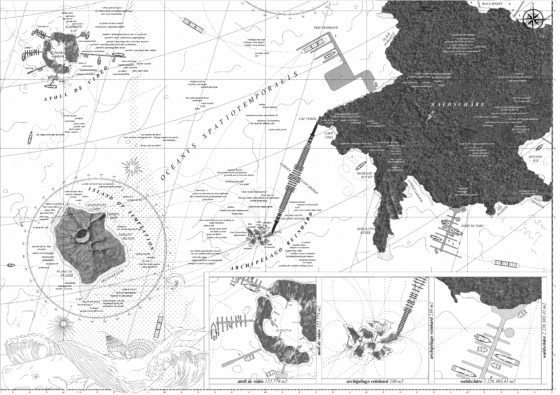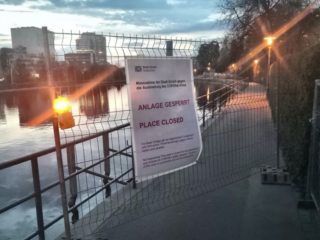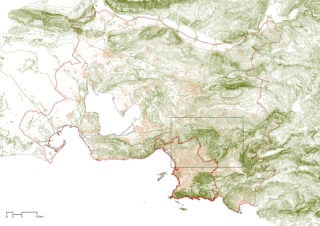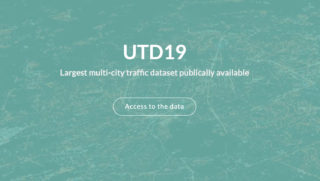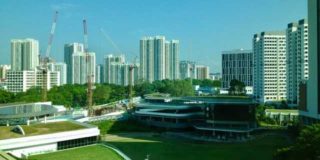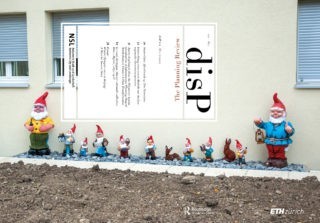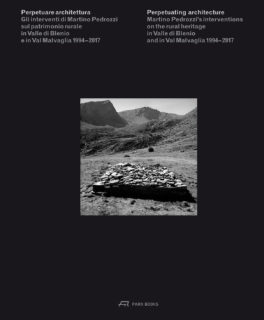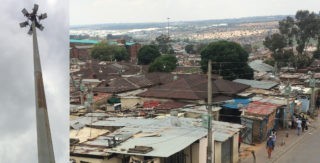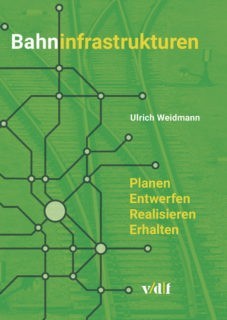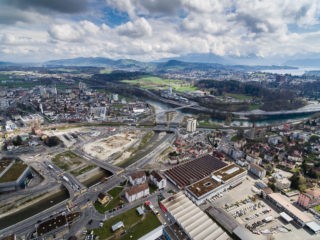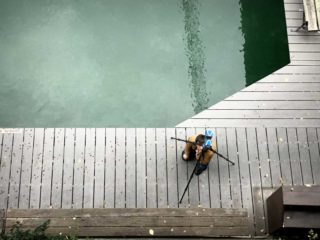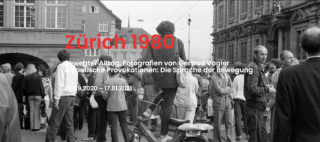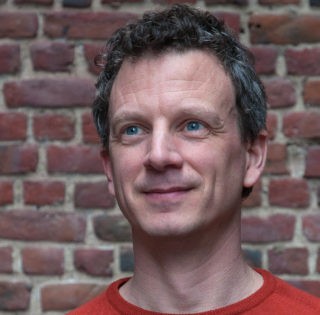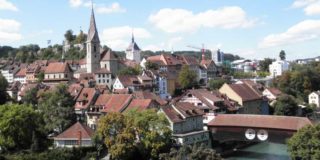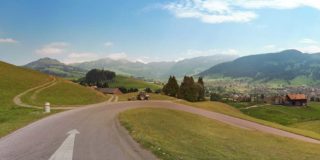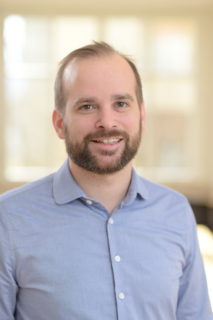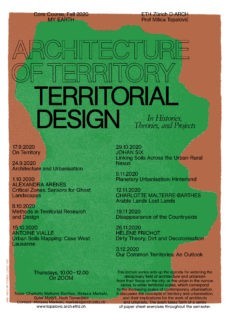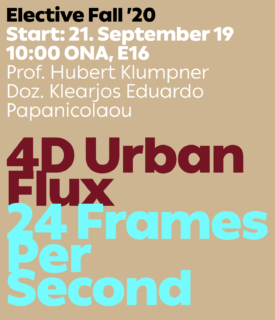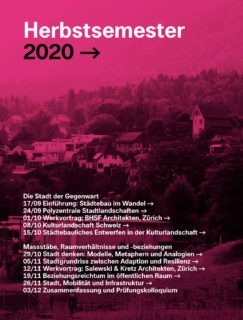Sehr geehrte Leserinnen und Leser
Der Umgang mit Krisensituationen ist – so haben wir mittlerweile alle bemerkt – sehr individuell. Gerne zeigen wir Ihnen, wie wir kreativen Fernunterricht führen, wie wir die Mobilitätsdaten während Coronazeiten für Forschung zu Grünflächen verwenden, wie Marseille und Neapel ihre langjährige ökonomische und soziale Krise angehen könnten und wie die Immobilienportfolios mittels der Real-Options-Methode krisensicher verwaltet werden können.
Wir wünschen viel informatives Lesevergnügen!
Enrico Celio & Sven-Erik Rabe | Professur von Adrienne Grêt-Regamey, Planung von Landschaft und Urbanen Systemen (PLUS)
incolab bringt Innovationen in Technik und Prozessdesign der Gruppe Planung von Landschaft und Urbanen Systemen (PLUS) in die Praxis. Das ETH Spin-off denkt die integrierte Landschaftsentwicklung weiter und bewirkt damit einen nachhaltigen Wandel im Umgang mit der Landschaft. Hierzu verbindet incolab bspw. das Assessment von Ökosystemleistungen, Visualisierungstechniken und partizipative Prozesse. Kontakt
Prof. Dr. Tobias Luthe (AHO) | chair of Adrienne Grêt-Regamey, Planning of Landscape and Urban Systems (PLUS)
Paulownia (Paulowniaceae) is one of the world’s fastest growing trees, originally introduced from Asia to Europe in the 17th century. Its wood is one of the lightest, while keeping high flexibility and stability, making it an ideal wood for regenerative composite constructions (a wood core sandwiched by fiber belts, such as from hemp) like skis, surfboards, orthopedic splines, or electric car chassis. At the MonViso Institute we experiment with its resilience growth on 1500m asl. Prof. Dr. Tobias Luthe (AHO)
Lukas Ambühl | Institute for Transport Planning and Systems (IVT)
Over the last four years, the Institute for Transportation Planning and Systems (IVT) at ETH Zurich and CITIES at NYU Abu Dhabi have gathered urban traffic data from over 40 cities worldwide, including London, Tokyo, and Zurich. In total, almost 5 billion vehicles covering a combined time span of 3.8 years were detected. Now, it is our pleasure to announce the publication of our dataset for public research purposes.
More
3. September 2020 – 17. Januar 2021 | Zentrum Architektur Zürich ZAZ, Höschgasse 3, 8008 Zürich.
Vor 40 Jahren wurde Zürich von einer urbanen Revolte erschüttert. Es war eine Rebellion gegen einen normierten und kontrollierten Alltag, gegen ein biederes, engstirniges und repressives soziales Klima, ein erbitterter und lustvoller Kampf für ein anderes urbanes Leben. More
20 October 2021, approx. 17:40–19:00 | Inaugural lecture Freek Persyn | ETH Zürich, Zentrum, Audimax (HG F 30).
More
29. Oktober 2020, 16.30–18 Uhr | live-streaming
Die Diskussionsveranstaltung zum Abschluss des vierjährigen interdisziplinären SNF-Projektes «Wie wachsen: Planung für eine ganzheitlich nachhaltige Landnutzung» nimmt Siedlungsstrukturen der Schweiz in den Blick und thematisiert die Bodennutzung der Schweiz. Ziel war es, ein Instrument für eine ganzheitlich nachhaltige Landnutzungs- und Siedlungsgestaltungsplanung zu entwickeln.
More
10. November 2020, 9:00–17:00 | Tagung Landmanagement 2020 | ETH Zürich (Zentrum), Auditorium Maximum HG F30.
Mit der Nutzung der multifunktionalen Landschaft gehen Anforderungen für Planung und Management der Verkehrsinfrastruktur einher: Nutzungen müssen verknüpft und die Verkehrsverbindungen den Ansprüchen der Nutzenden angepasst werden. More
10/11 November | Workshop | ETH Zurich, Oerlikon, Design in Dialogue Lab & online.
Spatial design is often confronted with an immense diversity of transformation processes. As a designer, it is often difficult to fully acknowledge this immanent complexity and find a position to intervene. More
10 November 2020 | SECO, IDB, World Bank, Asian Development Bank, Cities Alliance | Zurich.
Lecturer: Prof. Hubert Klumpner. More
5 December 2020, 16:00–19:00 | Web-Conference.
In the late 1970s and early 1980s, many social movements and uprisings were erupting in large and small cities across Western Europe, such as the movimento del’ 77 in ltaly, the Hausbesetzungen in Berlin, the fight against runway west in Frankfurt, the krakers in Amsterdam, revolts against ethnic discrimination, police violence and austerity politics in several British cities in 1981, the squat of the Reitschule in Berne or the movement Lôzane bouge. More
4 October, 17:15 – approx. 17:40 | Inaugural lecture David Kaufmann | ETH Zürich, Rämistrasse 101, F 30 (Auditorium Maximum).
More
Lecture Series | 5 sessions on selected Thursdays, 10:00–12:00 | via Zoom.
This lecture series sets up an agenda for widening the disciplinary field of architecture and urbanism from their focus on the city, or the urban in the narrow sense, to wider territorial scales, which correspond to the increasing scales of contemporary urbanization. More
Elective course | Starting 21 September on Mondays, 10:00–12:00 online and at ETH Zurich, Oerlikon, ONA E16, Neunbrunnenstr. 50, 8050 Zurich.
Lecturers: Prof. Hubert Klumpner, Klearjos Eduardo Papanicolaou, Michael Walczak.
The course aims to use diverse qualitative research methods and practical recording tools to interrogate the notions of place-making, map-making, and socio-spatial navigation through a multidisciplinary lens including urbanism, social research and media use. More
Elective Course | Starting 25 September on Fridays, 14:00–16:00 | online.
Lecturers: Prof. Dr. Christian Schmid, Dr. Lindsay Blair Howe.
Today, urbanization has achieved a planetary reach; novel patterns of urbanization are crystallizing across diverse environments, in agricultural areas, in the space of what may appear to be wilderness, and even in the oceans. More
Vorlesungsreihe | Ab 17. September donnerstags, 8:00–9:30 | ETH Zürich, Hönggerberg, HPH G1.
Dozent: Michael Wagner.
Die Vorlesungsreihe vermittelt grundlegende Kenntnisse im Städtebau. More
Redaktionsteam
Isabelle Fehlmann, Institut für Landschaft und Urbane Studien (LUS), Landschaftsarchitektur
Melanie Fessel, Institut für Landschaft und Urbane Studien (LUS), Städtebau
Claudia Gebert, Koordinationsstelle NSL, Chefredaktion
Joe Molloy, Institut für Verkehrsplanung und Transportsysteme (IVT)
Maarten Van Strien, Institut für Raum- und Landschaftsentwicklung (IRL)
Jan Westerheide, Institut für Landschaft und Urbane Studien (LUS), Städtebau
